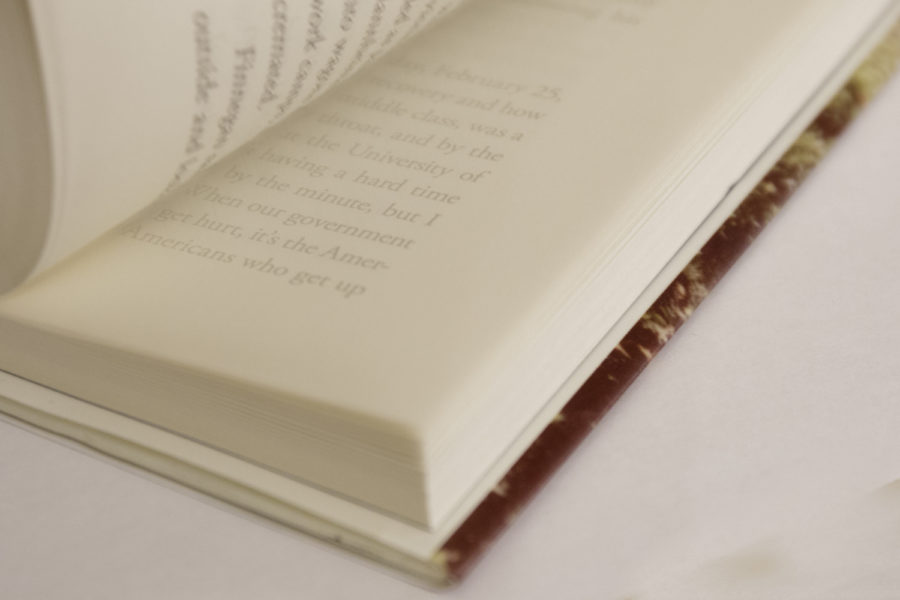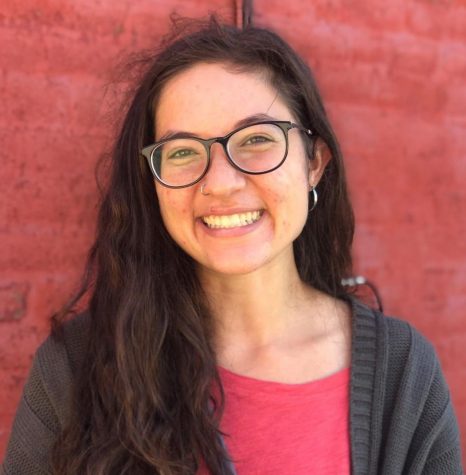Opinion | The 10 best books of 2019
December 6, 2019
The New York Times Book Review released its annual list of the year’s best books last week. Since then, news outlets like The Washington Post, Slate and The Guardian have composed similar lists. To close the year full of glorious reading, I present to you The Pitt News edition of 2019’s best books.
“How We Fight For Our Lives,” Saeed Jones
A poet by trade, Saeed Jones writes his first book of nonfiction about finding space for himself in the world as a queer person of color. The memoir is also about Jones’ relationship with his mother — his deep and agonizing love for her — and the ways in which it’s intertwined with his relationship with his own body. A body, he acknowledges, is never just a body. In his lifetime, he’s seen or used his skin and body — something figuratively and literally meant to protect — only as a burden or a weapon. Jones’ language and raw honesty is what makes his coming-of-age memoir so beautiful.
“People don’t just happen,” Jones writes. “We sacrifice former versions of ourselves. We sacrifice the people who dared to raise us.”
“Make It Scream, Make It Burn,” Leslie Jamison
Only 36 years old, Jamison published her third work of nonfiction and second collection of essays, “Make It Scream, Make It Burn,” in November. The book is split into three sections, beginning with essays that focus heavily on reporting — the loneliest whale in the world and a boy whose parents believe he is the reincarnation of a World War II pilot. The second section is more critical, featuring a meditation on James Agee and what it means to be a writer — which is to say, reaching for the unreachable. Though each essay is different, Jamison looks squarely at the world and honestly inside of herself in each. She uses her writing as a means of interpretation, to bring alive concepts and objects one looks at but doesn’t see. She makes them scream. She makes them burn.
Jamison is often compared to Joan Didion, who is hailed as one of the best essayists of all time. But “Make It Scream, Make It Burn” screams one thing in particular — though insightful, thoughtful and stunningly honest in her prose, Leslie Jamison is just getting started. It might be time to stop comparing Jamison to remarkable writers, and start comparing remarkable writers to Jamison.
“The Dutch House,” Ann Patchett
Ann Patchett isn’t new to the fiction-writing scene, though she never fails to tell a fresh and sobering story. A novel about a brother and a sister struggling to survive in New York, her story spans over five decades.
Its descriptions of nature are eloquent, but what shines through most beautifully in this book is Patchett’s storytelling ability. Both her prose and the story itself take the reader around bends when the road seems to only be straight.
“The Collected Schizophrenias,” Esme Wang
In the past 13 years, Esme Wang has been diagnosed with bipolar disorder, schizoaffective disorder and late-stage Lyme disease. In her collection of essays, which are tightened by research and cultural criticism examining her own struggles as an Asian woman navigating illness and personal narrative, she begs a philosophical question — is there a self separate from mental illness?
“What I feared was the in-between space: a purgatory for those too sick to truly live,” Wang writes. Her collection isn’t a memoir or a linear collection of essays as much as it is an examination of the human constructs that psychiatric illnesses are.
“A Bound Woman is a Dangerous Thing,” DaMaris B. Hill
This book is so much more than just history, so much more than just a poetry collection. Hill writes her collection of poems to black women who are bound and sometimes erased by history.
“In the 1862nd year of our Lord / there were 241 lynched / torn from wives arms and wedding Chambers. / Multiply that by the rope. Count the trees they strung from / The torches. All of this / done under the armor of white /supremacy / mob violence,” Hill, a University of Kentucky professor, writes to Ida B. Wells.
These poems are eloquent and bold, diving into the topics rather than dancing around them. The collection is an important read for humans — poets and non-poets alike.
“The Yellow House,” Sarah M. Broom
Broom’s part urban memoir about growing up in post-Katrina New Orleans, part literary journalism about seeping inequality in a romanticized city, made almost every top-book list of 2019 — and rightfully so. Broom’s book is the autobiography of her house and her mother’s struggle — spanning decades — to make it into a home.
She takes marginalized voices from her community — those who have been “erased from the map” — and brings them to the forefront, making them impossible to ignore. Broom’s prose is eloquent and haunting, as is her story. This book is a bold debut for a woman who will likely become one of the strongest voices in literary journalism within the next decade.
“The Nickle Boys,” Colson Whitehead
Once called a “modern day Candide,” this novel is about a promising first-year college student — Elwood — who accidentally hitchhikes with a car thief. The student, who was a moral stickler, is caught and tossed into a brutal reform school based closely on an institution from the early 1960s. There, he confronts cruelty and racism and sees the unjust world from a different perspective. The novel in its essence is a debate over the unjust world and whether there’s really a path to a more just world.
Whitehead’s novel is strewn with twists and turns. It examines racism in America and looks squarely at the world. It’s not always an easy read, but the Pulitzer Prize winning author of “The Underground Railroad” never produces work that doesn’t make the reader a better human.
“What My Mother and I Don’t Talk About: Essays,” edited by Michelle Filgate
Writer Michelle Filgate anthologized a collection earlier this year and asked writers to write about the messy, complicated relationships they have with their mothers. Filgate tells the tale of her abusive stepfather in the title essay, and the way in which it poisoned her relationship with her mother. Alexander Chee, author of the 2018 essay collection “How to Write an Autobiographical Novel” and Kiese Laymon, author of “Heavy: An American Memoir,” tell the stories of how their messy relationships with their mothers impacted their recent books. Nayomi Munaweera writes about her mother’s desire to take ownership over her daughter’s body and Melissa Febos uses Greek mythology to write about her heroin addiction — how it impacted her relationship with her mother while she was using, and the ways in which, despite being clean for years, it still impacts their relationship now.
Essay anthologies are often a hit-or-miss, often harboring two or three pieces that stick differently with every reader. “What My Mother and I Don’t Talk About” was different. Almost every single essay was a standout.
“In the Dream House: A Memoir,” Carmen Maria Machado
Machado’s memoir about her abusive relationship with another woman is form-shattering. Told in a series of vignettes that take on different genre styles — travel, romance, comedy and coming of age to name a few — she creates a platform for the societal silence around violence and psychological abuse in queer relationships.
Machado couldn’t find an archive of other stories like her own. So, she cut the silence and told her own story. “In the Dream House” is brilliant and brave.
“The Book of Delights,” Ross Gay
“My mother is often on my mind,” Gay writes. “Racism is often on my mind. Kindness is often on my mind. Politics. Pop music. Books. Dreams. Public space. My garden is often on my mind.”
Every day for a year, Ross Gay quickly drafted a small essay by hand about something that delighted him, then published them all in a book. He writes about getting lillies stuck to his pants in the garden and ridiculous emails he received from students. He writes about drinking coffee without the saucer and laying down in public. In writing the book, he saw the delight in his own life light up.
“Not without sorrow or fear or pain or loss,” he writes in the preface. “But more full of delight. I have also learned this year that my delight grows — much like love and joy — when I share it.”
Leah is the opinions editor at The Pitt News, and she writes primarily about her own delights: books, mental health advocacy, cumin and writing essays. Write to Leah at [email protected].









